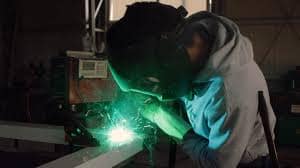Welding Tips for Beginners
If you are aspiring to become a professional welder, you need to devote some time and effort towards mastering this craft. As much as you might need some theoretical skills, hands-on experience is essential. Your focus as a beginner should be to understand some basic welding methods. With time, you will be able to handle larger projects. If you are just getting started, this write-up shares some basic welding tips to help any beginner understand welding training.
Play With the Puddle

One essential skill to master as a welder is how you will be playing with the puddle. You have to understand how to handle this depending on the nature of metals and joint. For instance, you should be able to achieve optimal travel speed and the right distance between the rod and the base metal. Spending too much time on one place can lead to burning a hole, having the rod too close to the base might lead to sticking, and you might experience spatter when the rod is too far.
Use the Right Filler Rods
As a welder, it is up to you to choose the right filler rods. The nature of the metals often determines the rods preferred. With the right rods, it is also imperative to store them in a humidity-controlled environment as high humidity levels often compromise their effectiveness on the job.
Calibrate Amperage and Electrode Size
It is imperative to learn how to calibrate the amperage and electrode size before embarking in any job. The amperage should neither be too or low or too high. Low amperage often leads to sticking, or the arc might stutter even if when it is held at the right distance. On the other hand, high amperage often leads to excessive noise, burn-through, charring which compromises the effectiveness of the flux, and excessively fluid puddle. As a welder, you have to learn how to establish the right balance.

Use Ergonomic Welding Tools
Welding is a naturally demanding job. As such, it is imperative to ensure you use your body well to avoid incidences of long-term injury. One way of doing this is to work a natural position, but you also need to have the right tools for the job.

